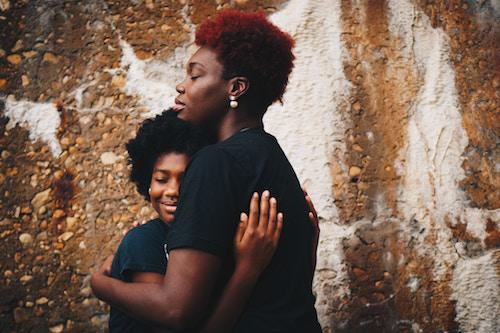Forgiveness is a common issue to struggle with. Yet when you hold onto painful memories or grudges from the past, it prevents you from enjoying the present. It prevents you from being present. When you are present, it is the key to experiencing the true joy, that exists, moment to moment, when you are aware of and tune into it. The past can really drag you down if you let it. For this reason, making peace with the past, is important if you want to live a full, happy and healthy life.
It is completely possible to be totally unaware that you are stuck in the past. Particularly if you have “blanked out” a traumatic memory as you did not have the support and capacity to deal with it at the time. Traumas and issues from the past can be stored in your subconscious, waiting for the right time to heal.
1. Acknowledge the Signals
Your body will leave you emotional clues when issues of forgiveness need to be addressed.
- Your life is not working the way you want
- You feel stuck and as though you are not flowing
- You’re regularly triggered or overly emotional by what others say or do
- You find it hard to have compassion or empathy for others
Forgiveness sounds simple, yet it’s common to find it difficult! In your natural state, you are forgiving—that is why young children forgive easily. Many people hold onto issues for years, and even taking them to the grave (to be resolved in the next life, if you believe in reincarnation). Yet holding onto things can prevent you from having so many happy, wonderful, joyous experiences, right now. Holding onto past issues can affect your relationships, health, and career. If you are unable to forgive, be gentle with yourself, as you probably have good reason. When you are aware the reasons you feel unforgiving, you have the opportunity to approach things in a new and life-enhancing way.
2. Overcome your ego
When faced with conflict, your minds inital reaction is to put up a front. To say you are right and everyone is wrong.
- Conditioning or modeling from others to hold onto things.
- Intuitively not feeling in a safe enough space to process, let go, and feel naturally forgiving.
- A subconscious belief that you need to hold onto old issues to prevent them from happening again.
- You may not know you are holding onto a former issue (as previously discussed)
When you are unable to forgive, it has very real consequences. When you hold onto issues from the past, it takes lots of energy. This is because it is like trying to hold a beach ball under-water. It takes effort, to keep your emotions down. In the world of psychology, this is known as repression of your emotions.

3. Don’t fight it
Being unforgiving can lead to a multitude of consequences.
- Feeling hurt, sad or angry you, as you repeatedly relive painful memories.
- Repressed emotions weighing you down and zapping your vitality.
- In the longer term, repressed emotions can affect your mental and physical well-being.
Forgiveness can be challenging, particularly when facing feelings you find overwhelming. It takes courage to face issues that have caused you pain or grief, however when you do (and do so in a supported environment with a counselor or therapist, if your feelings are very strong or overwhelming), the rewards will be worth it. As you forgive and let go of the past you will find yourself engaging in life, in more energized and fulfilling ways. Your self-esteem, confidence, health, career and relationships will all benefit when you are free of the past and fully engaged with the present.
4. How to forgive:
- If you find yourself unable to forgive, accept that, that’s the way you feel. Your hurt, anger or sorrow are usually, justified. Accept and validate your feelings, to feel supported, and allow your feelings will flow rather than be stuck inside. When you validate your feelings first, you are more likely to have the capacity to forgive.
- Forgiveness can be done energetically in relation to people you no longer see or are with you.
- With people who are currently in your life, forgive them energetically first and then when you see them it will be easier to detach from former issues.
- You may think you have won your struggle with forgiving others, however, past habits can sneak up on you and, you feel unforgiving again. If so, be kind to yourself, as personal development can be like that—one step backward and two steps forward.
- Look back on your journey to a year or two ago. Chances are you have grown personally, and all your efforts to create positive change have been worth it.

Forgiveness does take courage as you face your inner-most fears that are usually associated with issues you have been holding onto. When you practice forgiveness other people no longer “own” you in terms of the real-estate between your ears that they have been occupying. Your mind will feel clearer and will have the space to focus on the things that you enjoy.
With time and practice, forgiveness does get easier, like developing any new skill. When you become accustomed to practicing forgiveness, you just won’t want to waste your energy holding onto things from the past that does not serve your highest good. You will no longer sweat the small or the large stuff! When you forgive, you are emotionally “free,” and that makes the time and effort you have put into forgiving, well worth it.







